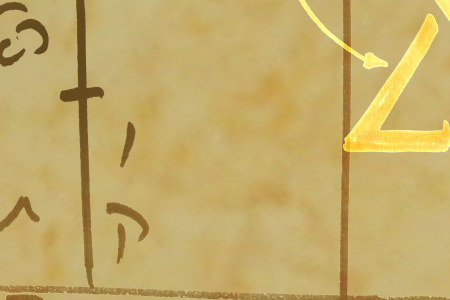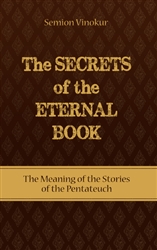
The Beginning of Adam’s Separation into a Multitude of Sparks
When the Creator exiled him from the Garden of Eden, the “human in us” (Adam) stopped being a child and began to mature.
The maturation process is a period when we know we must correct our egoism, for we cannot live with it or to simply suppress it.
There is no immediate correction, as the “serpent” suggested. Instead, man must descend all the way down until he feels the full span of his ego and begs the Creator for help, realizing that he’s powerless to deal with it on his own.
“And the man knew Eve his wife.” This means the altruistic and egoistic desires merged in man. The result was a merging, or “giving birth,” to two desires: Cain and Abel.
This is the beginning of the descent. We see how a great egoistic desire that man could not deal with began to split into pieces.
The Separation and Struggle in Between the Two Desires
One desire, Abel, gravitates toward bestowal, toward the Creator. This is why it is written that he doesn’t till the ground, but “keeps sheep.” He can be the “guide” and lead the way to fertile pastures. Whom does he lead there? Man’s egoistic desires, which are ready to follow him, foretasting the future pleasures. It is precisely these desires that are called “sheep.”
The desire called “Abel” is also called the “right line.” The right line is an altruistic desire, an aspiration for the Creator without a trace of egoism. This desire is sent down to us from above, like an outstretched hand or a lowered ladder that we can climb to the Goal.
The desire called “Cain” is the left line. This is the exact opposite – an egoistic desire and an aspiration to use the bond with the Creator for one’s own fulfillment.
In the story about Cain and Abel, the distancing from the Creator is not yet complete. That is, there is no situation such as in our world, where the Creator is absolutely concealed, the mind contends that it’s all a sham, and that man ought to live only for himself.
Here we have a different picture. We are in a dialogue with the Creator: He is felt and the spiritual world is near, but the desires are different.
Abel has pure desires, the desire to bestow, to receive pleasure from delighting the Creator. It would appear that Cain also has the desire to bestow, but in his case he strives to win the Creator’s favor, to merit His attention, to acquire the spiritual world. He wants to receive all the Light and the infinite pleasure it contains, but only for himself.
Finding the “Golden” Middle Line
You must work on your egoistic desires, rather than suppress or try to eliminate them because not receiving isn’t an option for you. This is how you were created. You are required to ascend above them, to use them, to master your egoistic desires, i.e., to receive pleasure from delighting the Creator.
That is the state at which man must ultimately arrive. Therein lies the purpose of man’s creation. Otherwise his ego will rule over him, and the result of its reign will be all the things humanity is afflicted with today: war, death, and tragedies.
“And Cain spoke unto Abel his brother. And it came to pass, when they were in the field, that Cain rose up against Abel his brother, and slew him.”
What does the fratricide mean here? It means that the left line suppresses the right. In other words, the egoistic line asserts the following, “I’m the only one that’s useful around here; I act, I harvest, I till the land, and I should be the one to be rewarded for all this.”
The strength of the earth, the desire, lies precisely in the combination of the right and left lines, in finding “the golden mean,” where man delights in reception only when he thus bestows upon another. This is the only way we can remain in infinite bliss.
But if this combination doesn’t take place, i.e., if “Abel is killed,” the earth cannot yield strength, but actually drains it, as all the efforts you made become labor for your own ego, for the left line, for Cain. The ego can never be satiated.
Preparation for Merging the Many into a Single Whole
Cain’s sin and his fate marks the beginning of the story of humankind, the process in which your soul descends from the Creator to our world. The soul itself does not change throughout the process, but simply dons egoistic garments that conceal it, dampening its voice, its eternal bond with the Creator. Thus it transforms from the single, unified heart of Adam into myriad points of an infinite number of people.
The Creator always remains connected to the soul in the part we call the “point in the heart.” This is why there ultimately comes a time when you “hear” His voice once more, sensing a feeble luminescence bursting through the filters and barriers. That’s when you begin to aspire to return to the spiritual world, to the Creator, longing for the Garden of Eden.
Humanity begins to procreate, its numbers are growing, but you already know that all these “people” are really your egoistic desires. It is your mission to correct them, whereupon you will return once more to the one soul of Adam, having joined with it into a single whole.
Lifting the Weight by the Multitude
Why was the great egoistic desire shattered into myriad tiny, egoistic desires? It happened because it’s easier to correct myriad tiny desires than one great desire. By correcting them, we reassemble the one great desire and restore the one soul in the Garden of Eden.
There is an old parable of a king who wished to send a great fortune to his son in another kingdom. This presented the king with a dilemma: he knew his people were all thieves and there wasn’t anyone in the whole kingdom he could trust with so much wealth.
So after giving the matter some thought, he found a way.
The king exchanged all of his fortune into coins of minor value, dispersed them among his subjects, and tasked them with delivering them to his son in the neighboring kingdom.
Naturally, the people couldn’t be bothered with pocketing such a small sum; it was more important to showcase their loyalty and obedience to the king. Every one of them fulfilled his duty with honor, and the entire fortune reached its destination.
 “What Is the Meaning of the Cain and Abel Bible Story?” is based on the book, The Secrets of the Eternal Book: The Meaning of the Stories of the Pentateuch by Semion Vinokur.
“What Is the Meaning of the Cain and Abel Bible Story?” is based on the book, The Secrets of the Eternal Book: The Meaning of the Stories of the Pentateuch by Semion Vinokur.